Travis Heermann's Blog, page 14
April 8, 2014
Author Interview Series #73 – Aaron Michael Ritchey
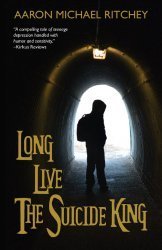

I met Aaron Michael Ritchey at Mile Hi Con in 2012, in one of those author mixer venues. At a room party at the con, there were about half a dozen writers standing around drinking and conversing, and the topic of conversation went toward religion and spirituality. In a world that bears the odiousness of the Taliban, the Westboro Baptist Church, and the Catholic Church sex abuse scandals, it was easy for most of us to get pretty snarky on the subject of religion. And then Aaron asked the question of all of us: “Do you think religion has, cumulatively, a positive or a negative effect on the world?” The reply was a unanimous “negative.” Except for Aaron. And what followed was a thoughtful, civil discussion (how often does that happen around this topic?) about religion’s place and usefulness in the modern world, a discussion that left all of us thinking a little more deeply about things.
Aaron Michael Ritchey is a questing soul who likes to ask the hard questions–in real life and in his fiction. Last week marked the official launch of his YA novel Long Live the Suicide King, and reviews are good. This book seems to ask some of those hard questions.
TH: What is The Story of Aaron? A teenage angst-fest? A long winding urban fantasy road to redemption?
AR: No, man, it’s an Epic Fantasy! It’s the heroic story of an unlikely hero, growing up in suburbia, afraid of people, a denizen of a basement home where he watched waaaayyyy too much TV and played with Legos. And read books. Seriously, I never thought I would ever be writing novels, talking about my novels, and getting out into the world. I’ve spent much of my life afraid and looking for comfort. I’m totally a Bilbo Baggins. Not even a Frodo, man. Totally a Bilbo.
TH: You said you are a Bilbo. So, who or what pushed you out the writing door without your handkerchief? Who/what was the person, book or song that made you put pen to paper? Did thirteen dwarves show up at your door?
AR: Really, the whole thing started for me when a friend of my dad’s gave me A Princess of Mars when I was in the third grade. I wanted off this rock and soaring through the skies of Barsoom with Dejah Thoris.
But while I wanted fly away to Mars on my writing, I wouldn’t have left Bagend if it hadn’t been for a conversion experience I had when I was nineteen. I left for Tarsus as Saul and wound up as Paul. It was through that life-changing, catastrophic event where I reached out for help, well, that’s when the adventure started. I extended my arms to the red planet and wound up writing books.
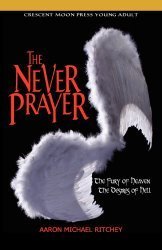 TH: What were your first serious creative impulses that led you to a creative career?
TH: What were your first serious creative impulses that led you to a creative career?
AR: I walked out of kindergarten because on the first day, the teacher made it clear I wasn’t going to learn how to read that day. I remember thinking, “This is stupid. I can color at home.” Later, I wrote stories in elementary school. My favorite was about Little Bo Peep who hired a bounty hunter armed with a sawed-off double-barrel shotgun to help find her lost sheep.
But I didn’t get serious about writing until my second daughter was born. She didn’t sleep. Neither did the first one. I was cracking apart in my suburban hell and I needed a purpose in life. I had always wanted to be a professional writer but never had the courage. My wife pointed me in the right direction, held my hand through the hard parts, and six years later of serious everyday type of writing, I got my first book published in 2012. The Never Prayer. I’m a later bloomer.
TH: Do you have any writing stuck away somewhere that will never see the light of day, but nevertheless helped you build your skills?
AR: The short answer. Yes. The long answer, I wrote a 500K epic fantasy/sci-fi/pseudo-religious trilogy that I spent seven years working on. Before that, I wrote a 150K postmodern literary fantasy novel (part Shakespearean play) that took me four years. I’ve penned a dozen other projects of various length. I’ve easily written and edited over a million words.

TH: Every writer has things they would like to accomplish, e.g. first sale, next sale, first novel sale, first bestseller, etc. What accomplishment are you striving for right now?
AR: Dang. Can I skip this question? You really want to know? Do you? Do you?!? I want to write books I adore. I want to write books that move the world. And I want to publish those books, as many as I can, by any means necessary. I spent the summer working on a project that was my sell-out novel. I’m still editing it, but I don’t want to write books that I’m not excited about just because I think they might hit that Twilight market. No. Other people can write those kinds of books. They’ll do it better than me.
I want to write Aaron Michael Ritchey novels. What genre? Kind of YA, but edgy. Not inspirational, but grimly spiritual and oddly uplifting. Above all, I want to take this world, describe it as well as I can, and then bring in a wide array of speculative fiction’s tropes. I love me a good trope. I want to keep my books grounded in reality, but with an added special sauce. For example, I have this over-the-top-Laurence-Fishburne-as-Morpheus drug dealer in Long Live the Suicide King. It starts out in plain old suburbia, but then it gets this Pulp Fiction type of vibe. I love that. And in The Never Prayer, my heroine is just a typical girl surrounded by drug addicts in a crumbling Colorado mountain town and then I bring in demons and angels. Those are the kinds of books I want to write and yeah, I probably won’t make millions of dollars, but I want to shine with pride when I send my Aaron Michael Ritchey books out into the world.
See. Told you I should’ve skipped this question.
TH: In reference to the Never Prayer. YA paranormal romance has been very prevalent over the last few years with some big hitting sellers. What sets yours apart?
AR: I love my book. Do you know why I love The Never Prayer? It is gritty. It is real. It’s a young woman at the edge of self-destruction, running drugs for her dirtbag boyfriend, for pocket change, just so she can pay her rent. It’s not happy. And then the angels and demons come to feast. What sets my book apart? It’s an Aaron Michael Ritchey novel. I’m so proud of the books I’m publishing.
TH: What about the writing process most appeals to you? What is the most fun?
AR: Oh, I used to love first drafts. I was the king of the first draft. Don’t make me edit!
Now I love to edit. I know, I’m odd. Things change. I was a total pantser, writing books by the seat of my pants. Now I plot books and I enjoy coming up on scenes I’ve been anticipating.
Best moment, though, is that I tie songs to different scenes in my books. I love it when I sit down to that perfect song to work on a scene. I have songs for the opening, songs for the climax, and songs for the denouement. I feel so rich when I write with music, those special scenes, and it really is magical.
TH: Have your reached the point at which you realized that you had “made it” as an writer? If so, can you describe the milestone or circumstances where you had that realization? Do you recall how that felt? If not, what is the milestone you’re seeking?
AR: Nothing will ever match holding my first book in my hands, with an ISBN number, with a cover, with a million hours of editing and revision. Nothing. And when someone fans out on me because I wrote a book they loved, well, it’s intoxicating.
I’ll never be where I want to be, but along the way, I’ve learned to enjoy moments of victory. Kirkus Reviews gave my upcoming novel, Long Live the Suicide King a glowing review. It was candy.
TH: Awesome cover on Suicide King. Very gritty and minimalist. More so than a lot of the YA covers out there. Was that intentional? How much input did you have?
AR: I had a ton of input. That’s the nice thing about working with small presses. The publisher and I chose the image from a selection and yeah, it’s dark, but there’s light because there’s a whole lot of light out there in this world. I’d be a fool to think there’s not.
TH: Some say that artists have to look at themselves as a business, a branded commodity. Do you take that approach?
AR: Yeah, I don’t want to, but I do. I’ve been working on some romances that don’t really fit the Aaron Michael Ritchey brand. I’m going to publish them under a pseudonym because they are different. Readers should expect gritty realism and magic from an AMR book. From my romances? Kisses and sighs and different kinds of stuff. I watched The Young and the Restless and All My Children growing up. So there is that side of me. I LOVE a good soap opera.
TH: What are the most effective ways you have found to promote yourself?
AR: I really, really like to handsell. Online, I do a bunch of stuff, but in person, talking to people about books, that’s really where I shine.
TH: Can you recall a moment when a two or more influences or inspirations came together and smacked you with a cool idea?
AR: I think in stories. I interpret the world in stories. I love ideas that set me on fire. For example, I wasn’t really excited about The Never Prayer until it struck me that my angel was an atheist. That idea exploded into my brain and I fell in love. For Long Live the Suicide King, I’ve spent many minutes of my life wanting to die, the dark moments in my epic fantasy – Bilbo in Mirkwood), and so I knew I had to write a book on suicide. But the story didn’t gel until I went for a long walk and came across a yappy little white dog and then, inspiration hit. I believe in walking out stories and ideas. But yeah, anything can get me fired up. I have hundreds of examples. I’ll stop here.
TH: You mention LOTR frequently. Favorite epic of all time?
AR: Of all time. Without a doubt. Starting in about the seventh grade, school would end and I would spend all of June reading The Hobbit through The Return of the King. My senior year in high school it was The Hobbit through The Silmarillion. The last time I read The Lord of the Rings, I was traveling through Africa and read about The Gray Havens in a guest house in Namibia. I cried and cried. Oh, how I long for the Gray Havens. I love the song “Into the West” by Annie Lennox.
TH: What is the most memorable moment (good, bad, or other) you have had in your life as a writer?
AR: Really, there has been too many to count. It’s why I do it. It’s the daily victories that make it worthwhile. I’ve talked about the good stuff in my other answers. How about I do a bad one? If you want to be a writer, you have to have bad experiences or you’d be missing out on the whole deal. Part of writing books is being rejected and suffering.
I took my first novel to a writers conference and I was so excited and so naïve. I thought they would want me to print it out right away. So I brought a printer. A literary agent sat down with me and she had read the first twenty pages and she tore me apart. Reduced me to ashes. I will never forget how completely wiped out I was afterwards. It was a death. I was killed. And at the same time, I was reborn.
TH: What can readers expect to see from you in the near future? What are you working on?
AR: Uh, one of my problems is that I write way too many books all at the same time. I’m working on a couple of romances, one with a writing partner, which is SOOOO much fun. Long Live the Suicide King will be released on April 3, 2014. My pre-sales page is up and the reviews have been grand, as I mentioned.
I have a wonderful YA novel that I’m working with another small press on and it’s like Letters to Julia meets The Fisher King. An overweight girl and her grandmother travel to France to reunite the old woman with her lover from World War II, who may or may not be a sorcerer prince from another world. Elizabeth’s Midnight! I love that book!
And I’m working on book two of an epic YA sci-fi/western that’s also steampunky. It’s my next massive, awesome, long, epic trilogy. Once I get all three books written, I’ll publish them each three months apart. It has all the stuff I love in books: love, guns, morally ambiguous characters, addicts, alcoholics, atheists, priests, and a world in peril! Not sure what the series will be called yet, but the books, in order have working titles: Dandelion Iron. Thistle Thrones, Sagebrush Hymnal.
I wanted to call the series Dandelions, Guns, and Little Lost Souls but no one likes the title except for me. It’s like The Good, The Bad, and The Ugly, but different.
TH: You say you’re working on some romances & a YA sci fi/western. Do you feel like your readership will accept such different genres from you? Often times when authors make extreme shifts, their readers rebel! (Anne Rice when she went from Vamps to stories of Jesus as a kid, J.K. Rowling her first non-Potter book out the gate, etc.)
AR: The thing about being small potatoes is that I have far more freedom with what I write and how I write it. If I hit it big in any one genre, I’d write that genre for the duration. I’d be okay with that. I love the process. I always fall in love with what I’m working on, and I could write pretty much anything and enjoy it. Inspiration sweet middle grade puppy stories? Oh yeah.
I am going to release my romances under a pseudonym, though, because they are such a complete departure from the books I’ve been writing. However, my YA sci-fi western steampunk family drama romance epic is a total Aaron Michael Ritchey book.
TH: Is the single season of Firefly worth the lifetime of withdrawal?
AR: Let me tell ya, I hope there is no more Firefly because it is perfect the way it stands. From Serenity the pilot, to Serenity the movie, it is perfection. But then, Joss Whedon was arguably doing the best work of his life, each week, trying to make it better and better to avoid being cancelled. That desperation, that artistic madness, shows. It was creating at gunpoint and that Joss Whedon is a genius. I wasn’t going to write my epic sci-fi western until I watched Firefly. A show which was cancelled. A show, by all accounts, that should’ve disappeared as a failure. But it was brilliant. It’s the Sistine Chapel of television art. Joss Whedon gave me the courage to spend literally thousands of hours of my life working on a project I adore more than sleep, more than health, more than my good sense.
Let’s see, Star Trek went off the air in 1969. Star Trek:The Next Generation premiered in 1987. Hmm. That’s eighteen years. The Firefly movie seemingly wrapped up the series in 2005. So yeah, 2023, I can see it. Only nine more years to go. I’m a liar. More Firefly!
April 1, 2014
Author Interview Series #72 – Quincy Allen
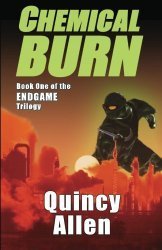 Quincy Allen is one of those
Quincy Allen is one of those  writers whose persona follows him around conventions. You’re just as likely to see him in full steampunk regalia, complete with mohawk and monocle, as in leather sport jacket and looking almost normal. The bottom line, however, is still all about the hard work, and here’s a guy who works hard. With one novel under his belt, and several short stories, he’s still near the beginning of his career, but I suspect he’s going to be around for a while. I also happen to know he’s not a bad poker player.
writers whose persona follows him around conventions. You’re just as likely to see him in full steampunk regalia, complete with mohawk and monocle, as in leather sport jacket and looking almost normal. The bottom line, however, is still all about the hard work, and here’s a guy who works hard. With one novel under his belt, and several short stories, he’s still near the beginning of his career, but I suspect he’s going to be around for a while. I also happen to know he’s not a bad poker player.
TH: What is the Story of Quincy? A steampunk shoot-out? A multi-genre trek through wastelands of shattered, renewed dreams?
QA: It’s funny you should ask it in that fashion. I’m currently wrapping up a story (the opener) for a short story collection that 7DS Books will be putting out this year. I bill myself as a “cross-genre” author, and this, my first collection, reflects how uncommitted to any specific genre I am. I don’t like boxes or being put inside them. Perhaps it’s the mohawk.
The collection is currently titled Out Through the Attic, and the opening story is about a young homeless man who saves an older fellow from street thugs. The young man is then given the key to a gateway that opens upon any dream he can imagine. The collection is an attempt to relate how my dreams take me just about anywhere and anywhen. As a result, my writing takes me and my readers to myriad places across both space and time. They can be fantastic, horrific, scientific or whatever. My brain knows few boundaries, with the biggest probably coming in the form of romance writing. A romance writer, I’m not.
TH: What were your first serious creative impulses that led you to a creative career?
QA: Like most of “us” (meaning writers) I’ve always written in one form or another. Fiction and poetry made its way to the page or screen before me throughout the entirety of my life. I achieved success in college through term papers, presentations and dissertations of one kind or another, mostly because it was the easiest path for me to navigate. And in pretty much every job I had after college, I was the guy who got “volunteered” to do the documentation for the department or organization.
As a career, though? That didn’t happen until I was forty-three years old. I came from the IT industry, and it’s like any other business. When a company gets bought, the new owners pretty much look to minimize their costs right out of the gate in order to increase the value of their investment. That means that middle managers are the first to go, particularly when the middle managers in question have trained one or more members of their team to be self-sufficient. So, one bright, sunny July morning, I found myself staring down at a pink slip, a severance check, some vacation pay and a fair chunk of stock options. It gave me six months of life where I didn’t have to work.
In a nutshell, I’d had a belly full of corporate America, politics, and yuppie bullshit. So, faced with the question, “What the hell do I do now,” I decided to laugh in the face of becoming a starving artist and decided right then and there to become an author. I wrote a 144k-word novel in two months and started working the con circuit. I wrote short stories and submitted them around. I got a few hits, but I found the pace of success to be a bit problematic. I’m a bit long in the tooth to be starting a new career, and I’m rather impatient, so I had to accelerate the process. I produced some anthologies and did as much writing as I could whilst working contract jobs as a tech writer.
The most important thing I did was define a five-year plan. At the end of those five years, I needed to have at least one novel out in the world and, preferably, with a publisher that wasn’t myself. I’m coming up on four years this July, and as of this year, my first novel will be carried by WordFire Press (owned by Kevin J. Anderson and his wife Rebecca Moesta). I’ll have a short story collection published by 7DS, a military sci-fi novel published by Twisted Core Press, and a steampunk novel published also by WordFire. While it’s unlikely that any of those will be a “breakout” work, the fact is that I’m ahead of schedule on my five-year plan, and things seem to be shaping up. 2014 promises to be a great year.
TH: Do you have any writing stuck away somewhere that will never see the light of day, but nevertheless helped you build your skills?
QA: I guess I’d have to say that I have writing that both always and never will see the light of day. I have stacks of notepad sheets and a hard drive full of ideas and starts. I have a few novel starts as well as short stories that go back to my twenties. Most will never see the light of day in the form they are in. However, I’m of the opinion that no idea should be thrown away. Sometimes such ideas are seeds. Sometimes they fuel other ideas and stories. Sometimes they need just a rehash to become worthwhile stories today. And sometimes I’m just not ready to write them.
There’s one story in particular, a novel start that will be finished… once I’m good enough. I have about 40k words of it done, words that have been sitting for over two years. I have a few readers from an old critique group who still ask me when I’m going to finish it. The truth is that the story and how it was evolving is better than I am today. Once I get a couple more novels under my belt, with all the developmental edits that are going to be handed back to me from editors, I should be able to tackle Curse of the Devoted. I’ll finish it, and shop it, and maybe then… after five years of grinding away at this business, I’ll have a break out novel. Only time will tell.
TH: Every writer has things they would like to accomplish, e.g. first sale, next sale, first novel sale, first bestseller, etc. What accomplishment are you striving for right now?
QA: This gets me back to that five-year plan. I’ve written short stories and had them published both independently and in other people’s collections. I’ve got novels coming out. Frankly, I’m ahead of the schedule I set myself. But there’s one thing I don’t have yet, and 2014 is the year I need to make it happen: a PRO sale.
I literally just submitted a short story to Daily Science Fiction, and I should hear back in the next couple of weeks as to whether or not I made the cut. I’ll keep submitting to them, and I’m going to submit more short stories to places like Analog and Asimov’s and Clarkesworld. I need to get a story into Writers of the Future as well as a few other places. My primary objective is to get that pro sale and turn it into a string of them. I need to get into SWFA (yes, I intend to become a member regardless of the internal turmoil that organization has been experiencing), and I want to be able to sit on panels or at bars with my peers and be able to say, “Yes, I hit the next milestone.”
TH: What about the writing process most appeals to you? What is the most fun?
QA: I guess the best part of writing is finishing a short story or novel. There’s a tremendous sense of satisfaction and achievement once a work is “complete.” Granted, no story is ever perfect, but there has to come a time when you say, “Enough. That’s as good as I’m going to make it.” There are plenty of people who say they want to be writers. But the list grows much shorter when you talk about those who actually finish a story, those who submit a story, and those who get published. The list gets infinitesimal by comparison for those who actually complete a novel… and the same reduction in numbers applies as one gets to those who have published a novel, even self-published.
I think my favorite part is discovering “what happens next.” I’m mostly a “pantser” writer. I’m working an outline for the military sci-fi novel, but even then, what specifically happens to and by the characters is not something that’s really in my head until I sit down and write it. In fact, there are plenty of times when what happens next requires me to go back and change what happened before. I bounce around in a manuscript, and that first writing can be as much or more of a discovery for me than the final novel becomes for an eventual reader.
You see, when I write a novel, there are bits and pieces—back- and fore-story—that may never see the light of day. I got to discover, for example, what happened to Justin Case before he came to Earth. I got to discover what happened to Jake Lasater before and during the Civil War. I know what happened to Kara’s father before she was born. I discovered countless things that will never see the light of day in a book.
All of this gets back to Out Through the Attic. When I’m writing a story, I’m discovering a dream that has yet to be dreamed, and because the real world is rather mundane and frequently less-than-satisfactory from an adventure perspective, my stories allow me to do things and see places that no one will ever know.
It’s a remarkable feeling.
TH: Have you reached the point at which you realized that you had “made it” as an writer? If so, can you describe the milestone or circumstances where you had that realization? Do you recall how that felt? If not, what is the milestone you’re seeking?
QA: Well, I guess I’d have to differentiate between writer, author, and professional author. I’ve made it as a writer, and I think I hit that milestone when I had editors asking me for my work. There were people out in the world who knew I wrote more than casually and, by definition, didn’t think I sucked at it. I will consider myself an author when I have at least one novel published by someone who isn’t me. Granted, technically, an author is anyone who has written a novel, but in this day and age, I think that the cutoff should be “having written one and had someone else willing to invest in it enough to give it some legs in the marketplace.” I guess I’ll cross that threshold this year. I promise to let you know what the experience is once I have it.
The last and final milestone for me is something altogether different. I currently work a day job and supplement my income by doing the print and eBook designs for WordFire Press. I’ll be a professional author when I can put all of that behind me and generate enough income from my fiction writing to do nothing else. My workdays will involve getting up in the morning, writing for anywhere from two to eight hours a day, and producing three or more novels a year that continue to feed my retirement.
I suspect that milestone is a few years away at best. The day I cross that threshold, there is going to be one HELL of a party, with single-malt scotch and Cuban cigars and jazz and probably a trip to someplace where there are palm trees and beaches and coral reefs and those fruity rum drinks with the little umbrellas in them.
TH: Some say that artists have to look at themselves as a business, a branded commodity. Do you take that approach?
QA: Absolutely. Unequivocally. Certainment! (as my French ancestors would say). Even in the good old days of only Publishers, Agents, and a short list of novelists who made it past the gauntlet of gatekeepers, a writer was a business owner where his or her product was writing. I come from a corporate background where I was working with marketing people and business development people and sales people. My one and only mentor taught me the importance of business, because business is how we pay the bills. Anyone who says otherwise is living off someone else’s dime or is a wannabe Communist (which is a great idea right up intil you inject good, old, bloody-minded Homo sapiens into the mix).
What that all means is that I’ve worked hard for four years to create an image and brand (see mohawk), and I do what I can to get out in front of potential customers online and at conventions. I treat my profession like an actual profession, in short because I want to get paid enough to live off of it for doing so. I can’t say that I’m always successful. I’ve stumbled a few times, and I have a million things to still learn about the business of writing, but I can honestly say I’m ahead of the curve as compared to many. Not most and certainly not all, but some. And for being only four years into this new career, I’d say I’m doing pretty well.
TH: A lot of the authors interviewed grumble a bit about the necessity of becoming a business (perhaps they feel it takes a bit away from the art of being an author?) but you seem more than happy about it! Do you ever feel that the self-promotion and business generation interferes with your writing?
QA: Well, I’m not sure I’d use the word “happy.” I think that promotion and marketing is a necessary facet of any business. And for those who have chosen the indie or hybrid path of authorship, they’re business owners in the purest sense of the word. Not only that, but unless they already have money falling out of their butts, they’ve taken on manufacturing, quality control, HR, accounting, sales, marketing and distribution. That’s what it is to be an indie or hybrid author.
I also believe that for me, anyway, there is no other title I’d rather have than Professional Author. It comes down to a very simple reality. There was a time when Publishers treated authors like celebrities. Schedules were provided, itineraries sent, plane tickets and cab rides arranged. Production, quality control, marketing and distribution were all handled by folks living on dreary old Manhattan. But today, even for the traditional path author, the gravy train is mostly gone… not completely, but it’s just around the corner. And the fact is that I’m rather old to be starting a career. I don’t have time to wait on agents and publishers and editors and cover artists in New Your to take four years to “discover me” and another two years to get my first book out to wait another three years for the next and hopefully viable sales enough for them to keep me on a leash. Geologically speaking, I’m going to be dead soon, and I don’t handle orders well. So, it’s not that I’m happy about doing the self promotion. It’s that I’d much rather be doing that job I don’t necessarily like than I would doing a job in someone else’s cube-farm… grinding their wheat… and building their future. A cog I am not. That last bit is relevant if you’ve read the opening short story in my upcoming collection Out Through the Attic.
TH: What are the most effective ways you have found to promote yourself?
QA: Thus far, conventions and networking have been the most successful mechanisms for getting the word out. My fan base, small though it is, came almost exclusively from convention appearances. Getting picked up by WordFire was as a result of networking with an Internationally Best Selling Author at a convention. Facebook networking put me in contact with the folks over at 7DS and Twisted Core.
I must admit that there are still folks who sit at home, write their novels in solitude, and get picked up by publishers. It’s what many refer to as the “traditional” path to publication. It works, to be sure. But that method is, no matter how you slice it, little more than dropping a steel rod in a field during a thunderstorm and hoping someone else raises it above your head so you get struck by lightning.
The path I’ve taken is different. It still requires getting struck by lightning, but the difference is that I’m planting multiple steel rods under multiple thunderstorms. I’m wiring them all together and pulling those cables taught with an electrode screwed directly into the base of my skull. If you play roulette, it’s the difference between playing one number and playing a lot of them.
It’s a not-so-subtle difference, and from what I’m seeing in eBook sales growth these days, I’d say my chances are significantly better to achieve my goals than the guy whose going the traditional path. I do have to also say that that guy, if he does get struck, has a better chance of making more dinero in one lump sum at some point, but the odds are in my favor of making revenue sooner and transitioning to full time author.
TH: Do you have an author that you model your career after?
QA: A model. I think you’re giving me more credit than I deserve. I have a business plan. I have milestones for when I want and need to achieve certain objectives. I’ve even hit those milestones, with this year hopefully hitting the big milestone of making a pro sale and getting at least one novel out produced by a publisher that isn’t me. It looks like I’ll have two or three things that will fit those requirements. But a model I’ve based this off of?
Nope.
A lot of this is virgin territory… not just for me, but for most indie and hybrid authors. And frankly, I’ve been making a lot of this up as I went along. I’ve talked to lots of authors, read blogs, tried to teach myself as much as I could about the publishing process and who the players are. But when it comes right down to it, I’ve been flying by the seat of my pants from day one. It’s sort of in my nature, and some would call it a severe character flaw. Only time will tell on that one. All I know is that if I can die having earned enough of a living to keep a house over my head and food in my belly, I’ll have died happy. It makes doing the marketing an insignificant price to pay.
TH: Can you recall a moment when two or more influences or inspirations came together and smacked you with a cool idea?
QA: I guess there is one good example. The military sci-fi novel I’m working on now has its roots in an Alan Parson’s song titled “Sirius” and, more significantly, one called “I Robot.” Those songs set an image in my head a number of years back where a lonely warrior knows he’s about to die. He stands in a downpour, protected in the rainshadow of a fifty-foot tall mech. He steps to the edge of a cliff and looks down upon a valley full of enemies. He sighs, steps into his battledress, and heads out to kill as many as he can before succumbing to numbers—valiant nobility in the face of insurmountable odds.
That vision needed a setting, however. It needed a story arc that had some meaning. When I combined that vision with today’s political troubles of Corporate Oligarchy ruling the roost, I realized that a young man who comes from corporate wealth might want to change the landscape. He then turns his back on his father’s corporate wealth and joins a band of battledress-clad mercenaries who are hired to protect innocents from Corporate greed.
The story has some “Seven Samurai” and “The Maginificent Seven” feel to it, but I hope it will be different enough and meaningful enough to tantalize and engross readers.
TH: What gets the creative juices flowing? Music? Long walks? Stroking the mohawk?
QA: I let others stroke the mohawk. I’ve been really amazed at how many people ask to do that. It’s weird, but I never say no. As to creative juices, I rely heavily upon music. I have a library of around 20,000 songs, and I let random serve up what it will most days. That’s just to get through whatever grind I’m in the middle of, and generally applies to my day gig and to the book design stuff I do. However, when I really need to sit down and crank out word count, I generally go to DubStep. You’ll even find a link on my website under “Author Tools” that points at Airwave DubStep on YouTube. I’ll fire that bad boy up, turn it up loud, and then disappear into my “attic” where the stories are. I guess Sherlock would refer to it as his Brain Palace. The analogy is probably closer to the mark than I ever really considered before now.
TH: What is the most memorable moment (good, bad, or other) you have had in your life as a writer?
QA: There are two that stand out. The first was when an editor told me that the story I’d submitted to her actually brought tears to her eyes. The story is titled “Family Heirlooms,” and it’s a steampunk take on the Underground Railroad. I’m rather proud of that one, and I was delighted to hear it had the effect it did. The other was when a publisher told me straight up that she wanted a novel from me. I’d asked her if their anthology imprint would be interested in my short story collection Out Through the Attic, and she said definitely, but the deal would have to include me writing a novel for them. It was a success on many levels, and I doubt I’ll ever forget that moment.
TH: What is in your “have to read next” pile?
QA: Halo books, Hammer’s Slammers, and anything with powered armor. I have a novel due by June 30th, and I’m doing research on battle dress and combat involving really big, dangerous machines. I just finished Armor by John Steakley, and I’ve read Starship Troopers, but I needed something a bit more contemporary to know what fans of powered armor are buying.
TH: What can readers expect to see from you in the near future? What are you working on?
QA: I actually have the next eighteen months mapped out. In this order, I have to finish the short story for the short story collection, I have to finish editing Blood Curse to get that to WordFire, and then I have to apply whatever revisions come back from them for Chemical Burn. Once those are behind me, I need to write Last Stand at the Gates of Eden for Twisted Core, and that deadline is June 30th. Once I wrap that up, I need to write Dios De Los Muertos, the sequel to Chemical Burn. When I finish that up, I want to finish Paragon, which is a YA steampunk-esque novel set in the distant future on a distant world. And finally, when that’s all done, I plan on revisiting Curse of the Devoted. By that time, I believe I’ll have the juice I need to finish that novel and give it the quality it deserves. And amidst all of that, I need to get enough pro short fiction sales to get into SFWA.
Piece of cake.
TH: In twenty years, what will you have to say of your writing career?
QA: I wish I could say with any certainty. What I’d like to be able to say is that “my body of work entertained readers across the globe, and my writing enabled me to retire to a quiet, tropical home abroad where I spend my days reading, writing, scuba diving, and going deep sea fishing for the sushi I eat every day. However, there is also the likelihood that I’ll never make it. That my book sales won’t pick up. That I’ll die with what I laughingly refer to as “Salieri Syndrome.” Salieri Syndrome is the curse of being able to recognize genius (and success) in others but never being able to produce it oneself. The reality will probably be somewhere between the two.
TH: Is there anything else you would like to talk about?
QA: I just wanted to thank you for giving me this opportunity. For an indie and hybrid author, the most valuable thing in the world is when others, writers or not, are willing to take time and put the word out. You’re doing that for me here and now, and I consider it a privilege… an honor. And yes, I know that may sound a bit hokey, but it doesn’t change how meaningful it is when other people are willing to talk about your work or career. I’m truly grateful… so thank you. I really do appreciate it.
March 24, 2014
Author Interview Series #71 – Piers Anthony


One of the long-standing luminaries of the fantasy genre is Piers Anthony. With forty Xanth novels under his belt, plus several other series, short stories and novellas, collaborations, Anthony has assembled a prolific body of work, and new stuff is coming out as we speak. Even with that much going on, he graciously took the time out to chat with us about the writing life, and what led him to it.
TH: What is The Story of Piers? A quirky epic fantasy? A roller-coaster thriller of creative frenzy?
PA: The Story of Piers is a kind of roller coaster, indeed. Throughout my life I have gotten in trouble for being right and standing my ground. In college I was suspended for a week for protesting the faculty’s arbitrary assumption of power over the girls’ lounge. The entire student body protested, staging a sit-in, but the college president threatened to close the college, and they backed down. In the US Army they punished my battalion because I and one other declined to buy US Savings Bonds. It was supposed to be free choice, but they wanted 100%. I was removed from my Survey teaching position, denied promotion, denied leave, set to pulling weeds and such, and the other guy they busted, that is, demoted. Then in my writing career I demanded a correct accounting from a publisher who was cheating me, and got blacklisted there for 6 years. In each case I was correct, and the other side was unethical or even illegal, but right does not necessarily make right. But I did get some of my own back: after the cheating editors were finally booted, I was invited back, and that same publisher made me a national bestseller. Roller coaster, yes. But I don’t recommend this route for others, because it was luck, not justice that got me through, and usually the wronged writer does not win in the end.


TH: What were your first serious creative impulses that led you to a creative career?
PA: I have been imaginative and creative all my life, but I never thought to be a writer until I had to ponder my college major. Then I pondered a day and a night and the light turned on. It has guided me ever since.
TH: Do you have any writing stuck away somewhere that will never see the light of day, but nevertheless helped you build your skills?
PA: Yes. My first novel, The Unstilled World, simply was not good enough to publish, and would be an embarrassment to me today. But it did serve as my 95,000 word graduating thesis for my BA in Creative Writing.
TH: A Spell for Chameleon was listed among the top 100 Sci-Fi books of all-time list by NPR. Others on that list include Tolkien, Bradbury, and Douglas Adams. Is this something you expected or hoped for in the early days of your career? Has it affected your outlook or day-to-day operations?
PA: I had no such expectations, and it did not affect my outlook. I thought A Spell for Chameleon would be a singleton novel, and indeed, it did not make any initial splash.
TH: Every writer has things they would like to accomplish, e.g. first sale, next sale, first novel sale, first bestseller, etc. but you’ve had a career spanning five decades. What accomplishment are you striving for right now?
PA: Make that five decades since my first sale, and six since my decision to write. I have accomplished what I want to, literarily (now don’t typo that!) so my remaining desire is lower-brow: to get a movie made from one or more of my novels, so I can go out on top. Maybe it will happen.
TH: Which of your novels or stories would you most like to see up on the silver screen? Are there any you feel are particularly well-suited to film adaptation?
PA: I’d like to see any of my novels or stories become a movie. One recent one that especially appeals to me in that respect is Aliena, about a lovely young woman who turns out to have the brain of an alien starfish from a far planet. It’s not horror, it’s amicable first contact. I think it has everything for a great movie, including an intense love story.
TH: What about the writing process most appeals to you? What is the most fun?
PA: I feel most truly alive when I’m writing. I love living briefly in the realms I create. Fame, money, etc. are fine, but it’s the creation that turns me on. I seldom attend book signings, or fan conventions; they take me away from writing, and I don’t crave what is called “egoboo” – that is, the boosting of ego from being told how great you are. Again, it’s not that it’s not fun, but I’d rather be writing.
TH: Have your reached the point at which you realized that you had “made it” as an writer? If so, can you describe the milestone or circumstances where you had that realization? Do you recall how that felt? If not, what is the milestone you’re seeking?
PA: The first milestone was my first sale of a short story. The second was the first sale of a novel. Both were great. The third, maybe, was achievement of best seller status. I believe I was the first to have a fantasy paperback original make the New York Time bestseller list.
TH: Some say that artists have to look at themselves as a business, a branded commodity. Do you take that approach?
PA: Yes, I have to, and I make it a point to read and understand contracts. This is a matter of self-preservation rather than preference. It would be nice if all publishers were honest, ethical, and decent. They aren’t. I can and do take legal action when necessary. But it’s not fun.
TH: What are the most effective ways you have found to promote yourself?
PA: I’m not much at promotions. I let the publishers do it. But I do maintain my www.HiPiers.com site as a way to express my views, inform readers of my works, and help others get published. I have had many appreciations from writers who have gotten published by finding their publishers at my site. I trust that all of this helps promote me, too.
TH: Can you recall a moment when a two or more influences or inspirations came together and smacked you with a cool idea?
PA: It happens all the time, too many cases to list. A recent example: I was reading “Prince Valiant” in the Sunday comics, wherein he was lured by a siren, and I thought, suppose there were a male siren that lured women? That led to my short novel Neris, to be self-published soon. It is “Siren” spelled backwards.
TH: What is the most memorable moment (good, bad, or other) you have had in your life as a writer?
PA: Every moment is memorable in its fashion. One negative one is when I was told by a lawyer that I could get sued and lose for telling the truth about the publisher that cheated me. That was a nasty revelation: that money, not justice, governed the publishing realm. Today publishers know that I now have the will and the means to make my case, so they don’t try to mess with me. But back then I didn’t. Regardless, it stinks. Writing is such an Idealistic pursuit; it’s a shame to have it soiled by corruption.
TH: What can readers expect to see from you in the near future? What are you working on?
PA: Right now I’m writing a collaboration with bestseller J. R. Rain, Jack and the Giants. I will soon write Xanth #40 Isis Orb. I am also writing stories. Today I finished “Descant” for Fantasy Scroll Magazine, a short fantasy with a musical theme. I am constantly writing, so there will always be new pieces until I die, and for a while thereafter.
TH: As you mentioned you are soon to be working on book #40 in the Xanth series. Do you ever see yourself bringing that series to a close? Are the elements going to break their borders and swallow Xanth?
PA: For decades all publishers wanted from me was Xanth, and I might have ended the series had I been able to sell much else. But it was locked in. Now it seems it is most of what my readers want from me. So I guess it will end when I die, if then. I always liked Xanth; I just didn’t want to be limited to it.
TH: You have written many stories and series’ outside of Xanth, your excellent Mode series, for instance. Why do you think Xanth has been your most popular series?
PA: Xanth is pretty much unvarnished entertainment, sort of like dessert. It seems that many readers crave that relaxation. I think also that it has become a familiar land that readers feel comfortable in, so when their lives get stressful, they retreat there.
March 23, 2014
Editorial Overmistress Seizes Control of the Ronin Writer
There’s a new contributor in town…
Danielle McCarville – Otherwise known as Editorial Overmistress, Danielle is an Aquarius with a love for butt-kicking urban fantasy (think Kim Harrison). She has known Travis since 2008, during which she lent her voice to The Heart of the Ronin podcast. This performance was her first foray into podcast work, and was greatly enjoyed. She currently resides in Kansas with her husband, toddler and new hobby of vegetable gardening, and runs her own cake and cupcake business (SmartyCakes).
Danielle will be instrumental helping shape a whole new round of upcoming Author Interviews. She is also taking a huge hand in organizing a fairly massive behind-the-scenes publishing project, which we’ll announcing soon.
December 6, 2013
Holiday Giveaways at Goodreads
I’m giving away a whole handful of books over on Goodreads this month! Check ‘em out!
.goodreadsGiveawayWidget { color: #555; font-family: georgia, serif; font-weight: normal; text-align: left; font-size: 14px;
font-style: normal; background: white; }
.goodreadsGiveawayWidget img { padding: 0 !important; margin: 0 !important; }
.goodreadsGiveawayWidget a { padding: 0 !important; margin: 0; color: #660; text-decoration: none; }
.goodreadsGiveawayWidget a:visted { color: #660; text-decoration: none; }
.goodreadsGiveawayWidget a:hover { color: #660; text-decoration: underline !important; }
.goodreadsGiveawayWidget p { margin: 0 0 .5em !important; padding: 0; }
.goodreadsGiveawayWidgetEnterLink { display: block; width: 150px; margin: 10px auto 0 !important; padding: 0px 5px !important;
text-align: center; line-height: 1.8em; color: #222; font-size: 14px; font-weight: bold;
border: 1px solid #6A6454; border-radius: 5px; font-family:arial,verdana,helvetica,sans-serif;
background-image:url(https://www.goodreads.com/images/layo... background-repeat: repeat-x; background-color:#BBB596;
outline: 0; white-space: nowrap;
}
.goodreadsGiveawayWidgetEnterLink:hover { background-image:url(https://www.goodreads.com/images/layo...
color: black; text-decoration: none; cursor: pointer;
}
Goodreads Book Giveaway

Heart of the Ronin
by Travis Heermann
Giveaway ends December 25, 2013.
See the giveaway details
at Goodreads.
.goodreadsGiveawayWidget { color: #555; font-family: georgia, serif; font-weight: normal; text-align: left; font-size: 14px;
font-style: normal; background: white; }
.goodreadsGiveawayWidget img { padding: 0 !important; margin: 0 !important; }
.goodreadsGiveawayWidget a { padding: 0 !important; margin: 0; color: #660; text-decoration: none; }
.goodreadsGiveawayWidget a:visted { color: #660; text-decoration: none; }
.goodreadsGiveawayWidget a:hover { color: #660; text-decoration: underline !important; }
.goodreadsGiveawayWidget p { margin: 0 0 .5em !important; padding: 0; }
.goodreadsGiveawayWidgetEnterLink { display: block; width: 150px; margin: 10px auto 0 !important; padding: 0px 5px !important;
text-align: center; line-height: 1.8em; color: #222; font-size: 14px; font-weight: bold;
border: 1px solid #6A6454; border-radius: 5px; font-family:arial,verdana,helvetica,sans-serif;
background-image:url(https://www.goodreads.com/images/layo... background-repeat: repeat-x; background-color:#BBB596;
outline: 0; white-space: nowrap;
}
.goodreadsGiveawayWidgetEnterLink:hover { background-image:url(https://www.goodreads.com/images/layo...
color: black; text-decoration: none; cursor: pointer;
}
Goodreads Book Giveaway
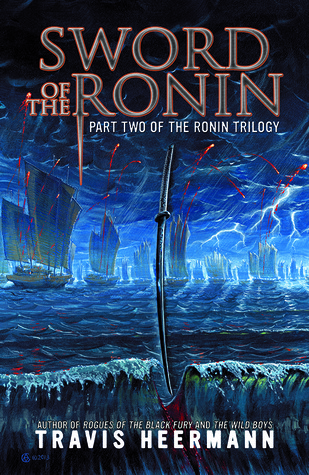
Sword of the Ronin
by Travis Heermann
Giveaway ends December 25, 2013.
See the giveaway details
at Goodreads.
.goodreadsGiveawayWidget { color: #555; font-family: georgia, serif; font-weight: normal; text-align: left; font-size: 14px;
font-style: normal; background: white; }
.goodreadsGiveawayWidget img { padding: 0 !important; margin: 0 !important; }
.goodreadsGiveawayWidget a { padding: 0 !important; margin: 0; color: #660; text-decoration: none; }
.goodreadsGiveawayWidget a:visted { color: #660; text-decoration: none; }
.goodreadsGiveawayWidget a:hover { color: #660; text-decoration: underline !important; }
.goodreadsGiveawayWidget p { margin: 0 0 .5em !important; padding: 0; }
.goodreadsGiveawayWidgetEnterLink { display: block; width: 150px; margin: 10px auto 0 !important; padding: 0px 5px !important;
text-align: center; line-height: 1.8em; color: #222; font-size: 14px; font-weight: bold;
border: 1px solid #6A6454; border-radius: 5px; font-family:arial,verdana,helvetica,sans-serif;
background-image:url(https://www.goodreads.com/images/layo... background-repeat: repeat-x; background-color:#BBB596;
outline: 0; white-space: nowrap;
}
.goodreadsGiveawayWidgetEnterLink:hover { background-image:url(https://www.goodreads.com/images/layo...
color: black; text-decoration: none; cursor: pointer;
}
Goodreads Book Giveaway
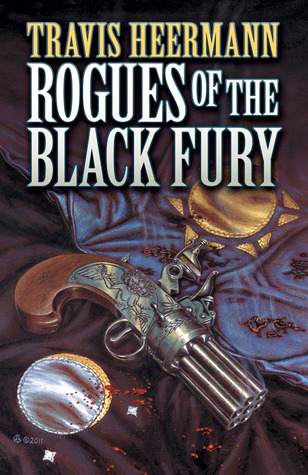
Rogues of the Black Fury
by Travis Heermann
Giveaway ends December 25, 2013.
See the giveaway details
at Goodreads.
.goodreadsGiveawayWidget { color: #555; font-family: georgia, serif; font-weight: normal; text-align: left; font-size: 14px;
font-style: normal; background: white; }
.goodreadsGiveawayWidget img { padding: 0 !important; margin: 0 !important; }
.goodreadsGiveawayWidget a { padding: 0 !important; margin: 0; color: #660; text-decoration: none; }
.goodreadsGiveawayWidget a:visted { color: #660; text-decoration: none; }
.goodreadsGiveawayWidget a:hover { color: #660; text-decoration: underline !important; }
.goodreadsGiveawayWidget p { margin: 0 0 .5em !important; padding: 0; }
.goodreadsGiveawayWidgetEnterLink { display: block; width: 150px; margin: 10px auto 0 !important; padding: 0px 5px !important;
text-align: center; line-height: 1.8em; color: #222; font-size: 14px; font-weight: bold;
border: 1px solid #6A6454; border-radius: 5px; font-family:arial,verdana,helvetica,sans-serif;
background-image:url(https://www.goodreads.com/images/layo... background-repeat: repeat-x; background-color:#BBB596;
outline: 0; white-space: nowrap;
}
.goodreadsGiveawayWidgetEnterLink:hover { background-image:url(https://www.goodreads.com/images/layo...
color: black; text-decoration: none; cursor: pointer;
}
Goodreads Book Giveaway
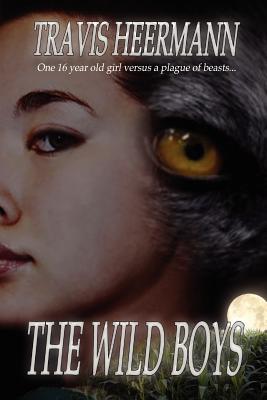
The Wild Boys
by Travis Heermann
Giveaway ends December 25, 2013.
See the giveaway details
at Goodreads.
.goodreadsGiveawayWidget { color: #555; font-family: georgia, serif; font-weight: normal; text-align: left; font-size: 14px;
font-style: normal; background: white; }
.goodreadsGiveawayWidget img { padding: 0 !important; margin: 0 !important; }
.goodreadsGiveawayWidget a { padding: 0 !important; margin: 0; color: #660; text-decoration: none; }
.goodreadsGiveawayWidget a:visted { color: #660; text-decoration: none; }
.goodreadsGiveawayWidget a:hover { color: #660; text-decoration: underline !important; }
.goodreadsGiveawayWidget p { margin: 0 0 .5em !important; padding: 0; }
.goodreadsGiveawayWidgetEnterLink { display: block; width: 150px; margin: 10px auto 0 !important; padding: 0px 5px !important;
text-align: center; line-height: 1.8em; color: #222; font-size: 14px; font-weight: bold;
border: 1px solid #6A6454; border-radius: 5px; font-family:arial,verdana,helvetica,sans-serif;
background-image:url(https://www.goodreads.com/images/layo... background-repeat: repeat-x; background-color:#BBB596;
outline: 0; white-space: nowrap;
}
.goodreadsGiveawayWidgetEnterLink:hover { background-image:url(https://www.goodreads.com/images/layo...
color: black; text-decoration: none; cursor: pointer;
}
Goodreads Book Giveaway
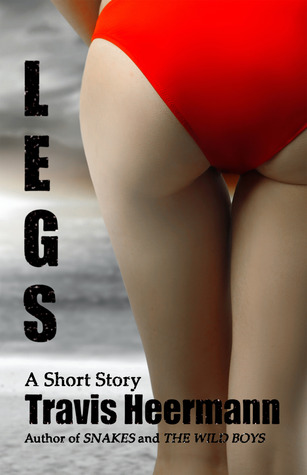
Legs
by Travis Heermann
Giveaway ends December 25, 2013.
See the giveaway details
at Goodreads.
December 1, 2013
Cars, Cards & Carbines Author Spotlight – E.C. Ambrose
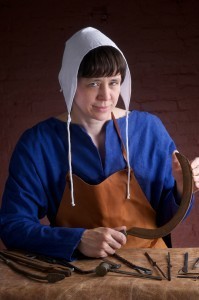 E. C. Ambrose wrote Elisha Barber (DAW, 2013) the first of “The Dark Apostle” historical fantasy series about medieval surgery. Other published works include “The Romance of Ruins” in Clarkesworld, and “Custom of the Sea,” winner of the Tenebris Press Flash Fiction Contest 2012. She is also the author of The Singer’s Crown and its sequels, The Eunuch’s Heir, and The Bastard Queen, published as by Elaine Isaak. Elaine quite enjoys her alternate identity, aside from a strong desire to start arguments with herself on social media.
E. C. Ambrose wrote Elisha Barber (DAW, 2013) the first of “The Dark Apostle” historical fantasy series about medieval surgery. Other published works include “The Romance of Ruins” in Clarkesworld, and “Custom of the Sea,” winner of the Tenebris Press Flash Fiction Contest 2012. She is also the author of The Singer’s Crown and its sequels, The Eunuch’s Heir, and The Bastard Queen, published as by Elaine Isaak. Elaine quite enjoys her alternate identity, aside from a strong desire to start arguments with herself on social media.
TH: What writers are some of your biggest influences?
ECA: This is a tricky one—does any author really know who we’re being influenced by? But in terms of my approach, I’d have to start with Mary Doria Russell, whose book The Swallow showed me what fiction could be, what it could do to or for a reader. Early on, Ray Bradbury and Tad Williams. More recently, I’d say Daniel Abraham, Tim Powers and Elizabeth Bear. Have they influenced my work? I’d be curious to hear what my readers think.
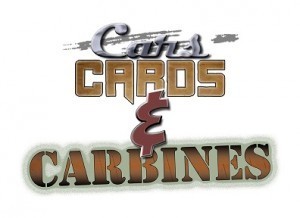 TH: What are some of your guilty pleasures?
TH: What are some of your guilty pleasures?
ECA: Does Astronaut Ice Cream count? How about “The Avengers”, or just about any film starring Marvel characters? (Except “Daredevil”, of course, which, well, let’s just not go there.) In terms of fiction, I love a good, nasty murder mystery and just finished Minette Walters’ latest. Definitely makes me guilty of something. . .
TH: What has been your favorite project to date and why? What was so satisfying and exciting about it?
ECA: My favorite project it almost always the one I just finished, in this case, my entry for the “Dark Crystal” Author Quest—which it’s entirely possible nobody will ever get to read. I am a huge fan of anything Jim Henson, and this was a chance to explore the world that he created with Brian Froud. Part of what made it such a rush was that it reminded me of when I was writing Elisha Barber. I wrote that book in a blaze of glory—35 days from start to finish. I felt absolutely in tune with the character, and in sympathy with everything he would go through—and I couldn’t wait to see what would happen next even while I was writing it. I think the energy of that exhilarating writing process shows through in the power of the book.
TH: What are you working on now?
ECA: I have some short projects I’m doing while I wait for revision notes on Elisha Magus, book two in the Dark Apostle series. I’ve turned in book 3 as well, and have a finished draft of book 4, which I’m allowing to cool off for a little while before I revise it. And in my research, I’m reading up on medieval Chinese technology for a new series concept.
TH: What attracted you to the Cars, Cards & Carbines anthology project?
ECA: I’m a huge fan of historical technology, and this project will give me a chance to put some of that excitement to use, while sharing a table of contents with some other amazing authors.
TH: What genre or mash-up of story are you most likely to contribute to the anthology? Do you have a story already in mind?
ECA: I’m working with some concepts, translating the theme into my dark historical fantasy milieu. Possibly, going to Italy, where the pre-renaissance city-states are clashing with early firearms and foreign mercenaries. The feel of that milieu is very frontier Western, but with Papal troops and back-stabbing condotieri in place of cowboys and Indians. Can’t wait to see where it takes me.
Without the support of people like you–yes, you, dear Reader–there will be no dark historical fantasy milieu, no clashes between the papacy and the condotieri. Please support our Kickstarter project. If you can’t back it, you can help by spreading the word. Thank you.
November 30, 2013
Cars, Cards & Carbines Author Spotlight – Kevin J. Anderson
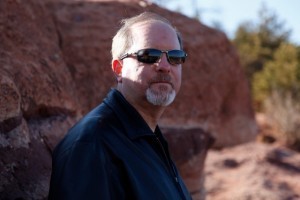 Kevin J. Anderson has published 120 books, more than fifty of which have been national or international bestsellers. He has written numerous novels in the Star Wars, X-Files, and Dune universes, as well as a unique steampunk fantasy novel, Clockwork Angels, which is based on the new concept album by legendary rock group Rush. His original works include the Saga of Seven Suns series, the Terra Incognita fantasy trilogy, and his humorous horror series featuring Dan Shamble, Zombie PI. He has edited numerous anthologies, including the Five by Five series. Anderson and his wife Rebecca Moesta are the publishers of WordFire Press. Wordfirepress.com.
Kevin J. Anderson has published 120 books, more than fifty of which have been national or international bestsellers. He has written numerous novels in the Star Wars, X-Files, and Dune universes, as well as a unique steampunk fantasy novel, Clockwork Angels, which is based on the new concept album by legendary rock group Rush. His original works include the Saga of Seven Suns series, the Terra Incognita fantasy trilogy, and his humorous horror series featuring Dan Shamble, Zombie PI. He has edited numerous anthologies, including the Five by Five series. Anderson and his wife Rebecca Moesta are the publishers of WordFire Press. Wordfirepress.com.
 TH: What writers are some of your biggest influences?
TH: What writers are some of your biggest influences?
KJA: I was influenced by Frank Herbert from the time I was 12 and read DUNE for the first time, and when I was young I read widely, a lot of Andre Norton and Edgar Rice Burroughs, then Ray Bradbury. As an adult, I really love Larry McMurtry, James Clavell, Stephen King.
TH: What are some of your guilty pleasures?
KJA: I used to like bad horror movies a lot (I saw almost every single one of the Elm Street and Friday the 13th movies).
TH: What has been your favorite project to date and why? What was so satisfying and exciting about it?
KJA: I really was thrilled to work with the band Rush to do the steampunk fantasy novel to their new concept album CLOCKWORK ANGELS. It was a lifelong dream for me to create a book like this, and I love how it turned out.
TH: What are you working on now?
KJA: Currently, I’m having a huge amount of fun with my humorous horror series, Dan Shamble, Zombie PI…Just finished the fourth novel, and I have also done a few standalone short stories in the series, and I hope to do many more, and I’m editing the big SF novel HELLHOLE INFERNO, the third book in my Hellhole trilogy with Brian Herbert…next up, a couple of short stories for anthologies, the scripts for the CLOCKWORK ANGELS graphic novel, and then the second book in my big space opera trilogy, The Saga of Shadows. So, plenty of items on tap.
TH: What attracted you to the Cars, Cards & Carbines anthology project?
KJA: The people involved. These are some great writers to join, and I can’t wait to see what everybody comes up with. The sheer level of energy and imagination in that table of contents is amazing.
TH: What genre or mash-up of story are you most likely to contribute to the anthology? Do you have a story already in mind?
KJA: It’s still percolating (and my brain is full right now with the other projects mentioned above!) I write horror, fantasy, science fiction, alternate history, humor, steampunk, mystery…so I have plenty of tools in my toolkit. I am revving my engines and waiting to surge forward.
Without the support of people like you–yes, you, dear Reader–there will be no surging forward, no green light at all. Please support our Kickstarter project. If you can’t back it, you can help by spreading the word. Thank you.
November 29, 2013
Cars, Cards & Carbines Author Spotlight – D.B. Jackson
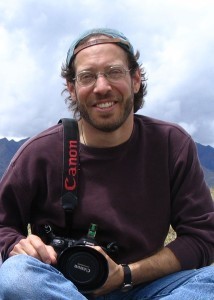 David B. Coe is the Crawford award-winning author of the Lon Tobyn Chronicle, the Winds of the Forelands quintet, the Blood of the Southlands trilogy, and a number of short stories. Writing as D.B. Jackson, he is the author of the Thieftaker Chronicles, a blend of urban fantasy, mystery, and historical fiction. David is also part of the Magical Words group blog, and co-author of How To Write Magical Words: A Writer’s Companion. In 2010 he wrote the novelization of director Ridley Scott’s movie, Robin Hood. His books have been translated into more than a dozen languages.
David B. Coe is the Crawford award-winning author of the Lon Tobyn Chronicle, the Winds of the Forelands quintet, the Blood of the Southlands trilogy, and a number of short stories. Writing as D.B. Jackson, he is the author of the Thieftaker Chronicles, a blend of urban fantasy, mystery, and historical fiction. David is also part of the Magical Words group blog, and co-author of How To Write Magical Words: A Writer’s Companion. In 2010 he wrote the novelization of director Ridley Scott’s movie, Robin Hood. His books have been translated into more than a dozen languages.
At DragonCon this year, David was part of that conversation with John Helfers about putting together this anthology. A couple of beers, some brainstorming, and here we have this project.
 TH: What writers are some of your biggest influences?
TH: What writers are some of your biggest influences?
Like so many fantasy authors, my first influence in the genre was Tolkien, who I encountered in my early teens. Reading The Hobbit, and in particular The Lord of the Rings, made me want to read as much stuff in genre as I could — I totally fell in love with fantasy. A few years later, when I read Stephen R. Donaldson’s Thomas Covenant trilogies (the first and second) I realized that I wanted to write fantasy for a living. It wasn’t that I necessarily wanted to write books that were like Donaldson’s, but his novels were so dark, so innovative, so completely different from anything I’d read before, that I began to recognize the possibilities open to me as a fantasy author. Finally, I have read much of Guy Gavriel Kay’s work. More than any other author, Kay sets a standard of excellence — in his character work, his prose, and his worldbuilding — to which I aspire.
TH: What are some of your guilty pleasures?
Single malt Scotch and small batch bourbons. Strawberry Twizzlers. The complete DVD collection of The West Wing. New York style pizza.
TH: What has been your favorite project to date and why? What was so satisfying and exciting about it?
My favorite project is probably the one I’m working on now. The Thieftaker Chronicles (Thieftaker, Thieves’ Quarry, next year’s A Plunder of Souls, and another one after that), which I’ve written as D.B. Jackson, is historical urban fantasy. It combines mystery and historical fiction with a healthy dose of magic, and it’s been a tremendous amount of fun to write. I have a Ph.D. in United States history, and have always loved history. This series allows me to combine that love with my passion for fantasy, which is something I’ve wanted to do for ages.
TH: What are you working on now?
Well, right now I’m writing the fourth book in the Thieftaker series, Dead Man’s Reach, which will be out sometime in 2015. And I have just signed a three-book deal with Baen Books for a contemporary urban fantasy that I’ll be writing as David B. Coe. The first book, Spell Blind, is already written and I will be starting the second book just after I finish my current project.
TH: What attracted you to the Cars, Cards & Carbines anthology project?
I think it’s a great theme for an anthology — specific enough to tie together the various stories that will appear in the project, but broad enough to keep the collection interesting and fresh and varied. And knowing Travis Heermann and John Helfers, as I do, I leaped at the opportunity to work with them. Also, just look at the listing of authors for the project. Who wouldn’t want to be a part of it?
TH: What genre or mash-up of story are you most likely to contribute to the anthology? Do you have a story already in mind?
My story will be an urban fantasy, but right now I’m not entirely sure if I’ll write it in the Thieftaker universe or the setting for my new contemporary project. Stay tuned!
Without the support of people like you, yes, you, dear Reader, this project will be on a dead end road going nowhere, please support our Kickstarter project. If you can’t back it, you can help by spreading the word. Thank you.
November 28, 2013
Cars, Cards & Carbines Author Spotlight – Cat Rambo
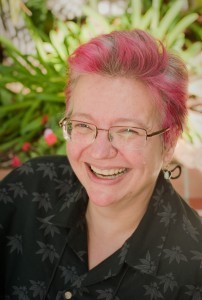 Cat Rambo lives, writes, and teaches by the shores of an eagle-haunted lake in the Pacific Northwest. Her 200+ fiction publications include stories in Asimov’s, Clarkesworld Magazine, and Tor.com. Her short story, “Five Ways to Fall in Love on Planet Porcelain,” from her story collection Near + Far (Hydra House Books), was a 2012 Nebula nominee. Her editorship of Fantasy Magazine earned her a World Fantasy Award nomination in 2012.
Cat Rambo lives, writes, and teaches by the shores of an eagle-haunted lake in the Pacific Northwest. Her 200+ fiction publications include stories in Asimov’s, Clarkesworld Magazine, and Tor.com. Her short story, “Five Ways to Fall in Love on Planet Porcelain,” from her story collection Near + Far (Hydra House Books), was a 2012 Nebula nominee. Her editorship of Fantasy Magazine earned her a World Fantasy Award nomination in 2012.
Cat Rambo is as gracious as she is prolific. It’s hard to find an anthology lately that she doesn’t have a story in. And she has the coolest name. We’re excited to have her on board for Cars, Cards & Carbines.
TH: What writers are some of your biggest influences?
CR: Samuel R. Delany, Colette, Andre Norton, Connie Willis, Djuna Barnes
 TH: What are some of your guilty pleasures?
TH: What are some of your guilty pleasures?
CR: I have many, but I feel too guilty about them to reveal any.
TH: What has been your favorite project to date and why? What was so satisfying and exciting about it?
CR: I think the most satisfying to date has been my collection, Near + Far, because it turned out so beautifully and because so many of my favorite people contributed to it. It ended up being a real work of art.
TH: What are you working on now?
CR: I just finished up a nonfiction project, Creating an Online Presence, which is about the Internet for writers, and I’m starting to poke at a weird western alternate history that I’ve been writing some stories in.
TH: What attracted you to the Cars, Cards & Carbines anthology project?
CR: It’s a nicely loose theme. I don’t like the very constrictive ones — I need a little room to play around in.
TH: What genre or mash-up of story are you most likely to contribute to the anthology? Do you have a story already in mind?
CR: I really am not sure yet. I’m still in the playing with ideas stage, at which point anything could happen. 
Please support our Kickstarter project. Without the support of people like you–yes, you, dear Reader–nothing will happen. If you can’t back it, you can help by spreading the word. Thank you.
November 26, 2013
Cars, Cards & Carbines Author Spotlight – Norman Partridge
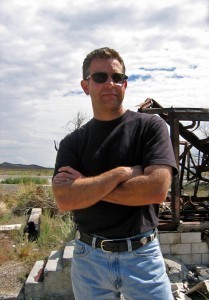 Norman Partridge’s fiction includes horror, suspense, and the fantastic—“sometimes all in one story” says his friend, writer Joe Lansdale. Author of six short story collections, Partridge’s novels include the Jack Baddalach mysteries Saguaro Riptide and The Ten-Ounce Siesta, plus The Crow: Wicked Prayer, which was adapted for film. His novel, Dark Harvest, was chosen by Publishers Weekly as one of the 100 Best Books of 2006. Partridge’s compact, thrill-a-minute style has been praised by Stephen King and Peter Straub, and his collections and stories have received both the Bram Stoker and IHG awards.
Norman Partridge’s fiction includes horror, suspense, and the fantastic—“sometimes all in one story” says his friend, writer Joe Lansdale. Author of six short story collections, Partridge’s novels include the Jack Baddalach mysteries Saguaro Riptide and The Ten-Ounce Siesta, plus The Crow: Wicked Prayer, which was adapted for film. His novel, Dark Harvest, was chosen by Publishers Weekly as one of the 100 Best Books of 2006. Partridge’s compact, thrill-a-minute style has been praised by Stephen King and Peter Straub, and his collections and stories have received both the Bram Stoker and IHG awards.
We are totally revved up to have Norman Partridge with us on this project.
 TH: What writers are some of your biggest influences?
TH: What writers are some of your biggest influences?
NP: Stephen King, Dan J. Marlowe, Ray Bradbury, Joe R. Lansdale, Richard Stark, Robert Bloch. Jack Kirby and Stan Lee. And all those guys who wrote for the TWILIGHT ZONE.
TH: What are some of your guilty pleasures?
NP: Hot rod monster movies like VILLAGE OF THE GIANTS. Spielberg’s 1941 (hey… it’s almost Christmas, so check ‘er out!). VIVA LAS VEGAS. Roy Rogers. Bing Crosby. Eighties cheeze like STREETS OF FIRE… but only because my wife likes to tease me about that one (i. e. “I worry about your Diane Lane fixation, Norm.”). It’s a phenomenally perfect drive-in movie for a summertime night. Really. Every year I show it to a bunch of the students who work for me at a college library, and they all love it.
TH: What has been your favorite project to date and why? What was so satisfying and exciting about it?
NP: My Halloween novel, DARK HARVEST. I intended it as a love letter to Halloween and a celebration of the coming of age stories I grew up on. But it turned out to be something bigger than that. DARK HARVEST is my love letter to storytelling, from those tales I heard in the backyard as a kid to all those writers I’ve loved from the other side of the page. I wouldn’t change a word of it, and it’s been fantastic to see so many readers connect with the book.
TH: What are you working on now?
NP: A novella for Cemetery Dance and a new story for SUBTERRANEAN ONLINE.
TH: What attracted you to the Cars, Cards & Carbines anthology project?
NP: The idea just naturally plays to developing the kind of story I love. Fast and mean. As I said on my blog American Frankenstein, I’m itching to write a piece for this book. Been a while since I’ve written a roadrace to nowhere, and I’m in the mood.
Plus, you guys mentioned WILD, WILD WEST in the guidelines.
TH: What genre or mash-up of story are you most likely to contribute to the anthology? Do you have a story already in mind?
NP: Crime, horror, and noir. I love to mix those up… and, yep, I’ve already got a blood-stained roadmap for the tale. So expect one bucketful of hard-boiled horror from me. Plenty of brimstone and gunpowder, plus a character I’ve been thinking about for some time now. Can’t wait to key the engine and rev ‘er up.
Please support our Kickstarter project. Without the support of people like you, yes, you, dear Reader, this project will be on a dead end road going nowhere. If you can’t back it, you can help by spreading the word. Thank you.







